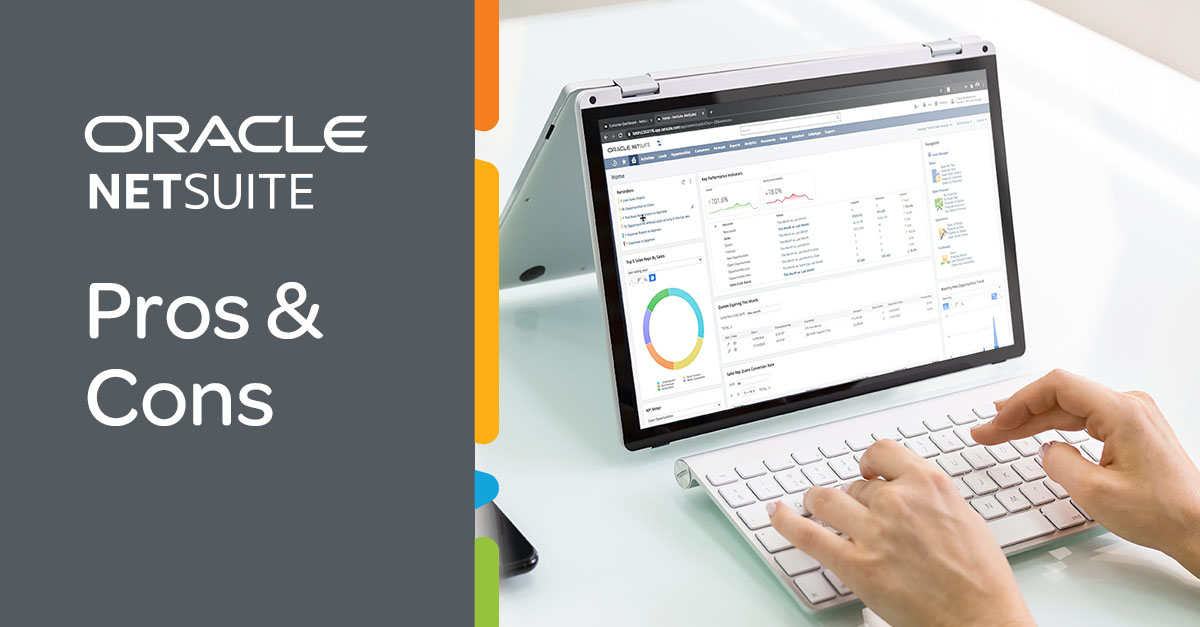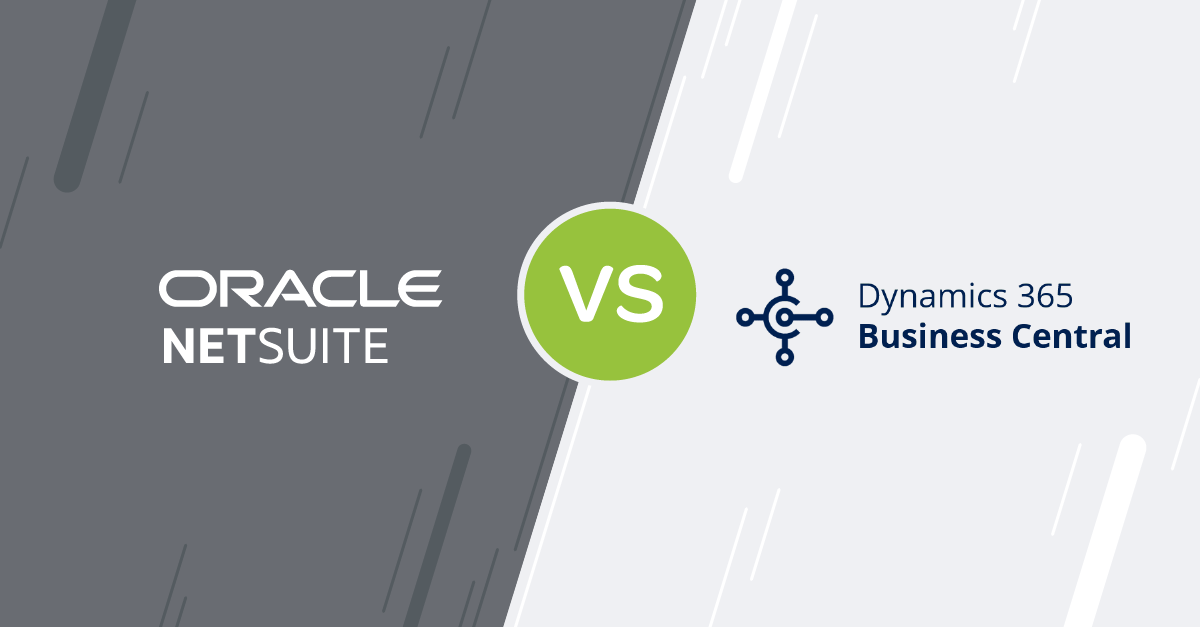Blog
Share this
NetSuite ERP Pros & Cons: Is it the Right ERP for You?

by Carly Caines on June 12, 2025
If you’re reading this article, it’s safe to assume that you’re evaluating NetSuite ERP for your business. Chances are you’ve already found tons of information on NetSuite’s functionality, the different modules available and all the benefits it can offer.
But now you might be wondering...“What’s the catch with NetSuite?”
In our experience as a NetSuite Solution Provider, there’s not one specific “catch” that’s going to stop a company from choosing NetSuite as their ERP solution. In cases where NetSuite doesn’t win, it’s usually because another ERP solution was simply a better fit for that company’s needs. After all, no ERP solution can be all things to all companies.
But we do believe you should go into an ERP purchase eyes wide open. That’s why we provide all the information – including things to watch for – so you know what to expect and how to adjust.
With that in mind, here’s what you need to know about NetSuite.

Pros NetSuite ERP
First, let’s start with the good stuff! For questions about features, check out our NetSuite overview.
1. NetSuite is an all-in-one solution that supports growth from start-up to large enterprise
NetSuite is built to support your business at every stage — whether you’re just getting started or scaling into a larger operation.
NetSuite has roots as an accounting platform, providing a strong ERP core. Today, the solution has been built out to cover a range of functional areas – from sales and CRM, to inventory, supply chain management, production and more.
For small businesses or startups, NetSuite Starter gives you access to core functionality right away. You can add modules and expand your capabilities as your needs grow. Its modular approach means you don’t have to implement everything at once, allowing you to scale at your own pace.
Here’s what one user had to say about NetSuite on Trust Radius.
“From accounting to ERP to CRM, I don’t imagine there is much NetSuite can’t handle. For a small to medium sized business, and even for many large organizations, I believe it is entirely possible to put all of the corporate system ‘eggs’ into one basket – that is the NetSuite platform.
2. NetSuite provides strong financial management capability
NetSuite’s strong financial core makes it a top choice for companies with requirements for intercompany, revenue recognition and multiple billing models.
Here’s how NetSuite improves financial management:
- Build accurate budgets with modeling tools at the department or company level
- Streamline billing management across subscription, usage-based and hybrid billing models
- Automate revenue scheduling, allocation and reporting for compliance
- Simplify intercompany accounting and consolidated financial reporting
- Leverage real-time financial data to improve forecasting and performance tracking
- Access advanced planning and budgeting tools to support smarter decisions with rolling forecasts, scenario modeling and built-in reporting
3. NetSuite is built to support integration
While NetSuite (like any good ERP) can handle most of your core business processes, it’s common to use the odd third-party solution for very specific processes. These are usually niche solutions that meet industry-specific needs. The good news is that NetSuite is built to support integrations. Here are a few of the options available:
- NetSuite Connectors are pre-built integrations for popular tools like Zendesk or Magento. You can explore the available connectors on the SuiteApp site. Look for the ‘Built for NetSuite’ badge, which indicates the connector has been thoroughly tested for the latest NetSuite release.
- NetSuite Integration Platforms (iPaaS) enables the development, deployment and governance of data flows between applications. This is a good approach when you’re connecting multiple systems together, rather than just one app.
- NetSuite Integrations (custom) can be developed on a case-by-case basis to meet specific business requirements. You’ll typically work with your NetSuite partner to develop and implement these custom integrations.
4. NetSuite can be customized to fit your business processes
Although NetSuite offers a lot of functionality out-of-the-box, every business has processes and workflows that are unique to them. That’s where customization comes in.
This could be something as simple as customizing form layouts, fields or dashboards, which users can do with little technical knowledge. Or it could be something bigger, like customizing workflows or building out new functionality entirely using SuiteScript (built on JavaScript). When you get into that level of customization, we recommend working with your NetSuite partner, rather than trying to do it yourself (unless you have deep technical expertise on your team). A NetSuite partner will ensure that customizations are created properly so they require minimal maintenance and properly address your business need.
5. NetSuite is leading the way in AI for ERP
These AI tools aren’t flashy extras—they’re practical, embedded features that help your teams work smarter every day. As NetSuite continues to lead in this space, you’ll get access to even more intelligent capabilities with every update.
Here are just a few of NetSuite’s AI features designed to help your business:
- Bill Capture automatically extracts key data from vendor invoices to reduce manual entry and speed up AP processing.
- Planning and Budgeting uses predictive models to support better forecasting, so finance teams can stay ahead of shifts in demand or spending.
- Supply Chain Control Tower offers visibility across your supply chain and flags disruptions before they become costly problems.
Related Reading: AI and ERP: What to Expect in 2025
Cons of NetSuite ERP
Now it’s time to rip off the band-aid and talk about the potential roadblocks you might run into. Pay attention to our pro tips that can help you navigate these challenges!
1. Subscription pricing can change over time
A big draw of NetSuite’s subscription pricing model is that you can spread out the spend over time, rather than having a big lump sum payment up front. You also get a bit more flexibility to add/remove users as needed, and your subscription price will adjust accordingly.
You also have flexibility to implement your NetSuite solution in phases and only pay for bundles (or modules) as you implement them. With each new bundle you add, you’ll see an increase in your subscription price. In some cases, you could be forced to purchase a new feature bundle just to access one piece of functionality that you need. Rather than paying for 90% of what you don’t need, just to get the 10% that you do, work with your NetSuite partner to see if there’s an opportunity to customize your system to get the functionality you need. It could end up being more cost-effective.
The most important thing to keep in mind is that your subscription price can change each time you renew. The price increases are intended to align with the incremental value NetSuite provides with product enhancements and new functionality. While your costs may not be as predictable over the long term, you can often negotiate better pricing with longer contracts (three years is typical). But if you prefer an annual renewal to give you more flexibility, you could see more variation in your costs.
In summary,
- Each added module (or “bundle”) increases your costs
- Sometimes you’ll need a whole module for a single feature
- Subscription prices can increase at renewal time
Pro tip
Lock in better pricing with longer contracts, and work with your NetSuite partner to explore customization before adding costly bundles.
Interested in getting an accurate quote on what NetSuite will cost your business?
2. Basic support is limited, and additional support comes at an extra cost
All NetSuite customers are provided with the Basic Support package that includes:
- 24/7 phone support for critical concerns
- Online support through the SuiteAnswers searchable knowledge center
- Access to the NetSuite Support User Group
To access 24/7 support and expanded online case support, you must upgrade to Premium Support which comes at an additional cost.
Users have also expressed that while the NetSuite support team will resolve issues, they tend to be more technical and don’t always guide customers. This can make it more challenging for less technical users to troubleshoot and resolve problems.
Pro tip
Keep in mind that your NetSuite partner will likely offer their own support packages. It’s often more personalized (and more affordable!) than NetSuite’s Premium package. Plus, you’ll be dealing with consultants that know your system configuration and business processes, meaning they will be better able to guide your users and help them use the system more effectively, rather than just addressing the technical issues.
3. Customizing reports can be challenging
NetSuite’s reporting tools are designed to be user-friendly, especially for non-technical users. You can quickly make small changes—like adjusting fields, formatting layouts, or modifying filters—without needing much technical knowledge.
That said, the flexibility has its limits. You’re working within a set of pre-defined data sources, and creating custom ones typically requires development support. For example, saved searches only allow two data joins, and dashboard widgets offer limited customization.
While NetSuite does offer options for more advanced reporting, most companies stick to the basics. In our experience, when customers need more complex or multi-source reports, they often choose to work with a NetSuite partner for assistance.
Pro tip
This is where your NetSuite partner will be a big asset. They can help you customize your reporting (and your NetSuite solution as a whole) to fit your needs. Keep in mind that not all NetSuite partners will have the same depth of knowledge when it comes to customization, so make that a top criterion as you evaluate partners.
Final thoughts: Should you choose NetSuite?
NetSuite ERP is a serious platform for serious growth. If your business is scaling, expanding, or evolving — and you’re tired of juggling disconnected systems — it could be exactly what you need.
Just make sure you go in with clear expectations, a smart implementation plan, and the right partner to support your long-term success.
Ready to explore NetSuite?
Connect with our team today to see how NetSuite can help you grow your business faster.
Frequently Asked Questions
Is NetSuite good for small businesses?
Yes, especially with NetSuite SuiteSuccess, which provides pre-configured industry solutions designed for small businesses. It also helps with a streamlined ERP implementation and gives you access to best practices from the start.
Can NetSuite be customized for my industry?
NetSuite offers many industry-specific modules and can be tailored to your workflows with built-in tools or advanced customization through a NetSuite partner.
How much does NetSuite cost?
The price of your NetSuite subscription will vary based on your company size, number of users and the modules you purchase. A NetSuite implementation project can range from under $30,000 to $250,000+ depending on the scope and complexity of your requirements. To learn more about the cost of NetSuite, read our NetSuite Pricing Guide
Share this
Stay in the Know!
Join other SMEs who receive our monthly ERP insights, tips and best practices.
You may also like

ERP Funding for Canadian Businesses

Should You Work with a NetSuite Implementation Partner or Go Direct?




